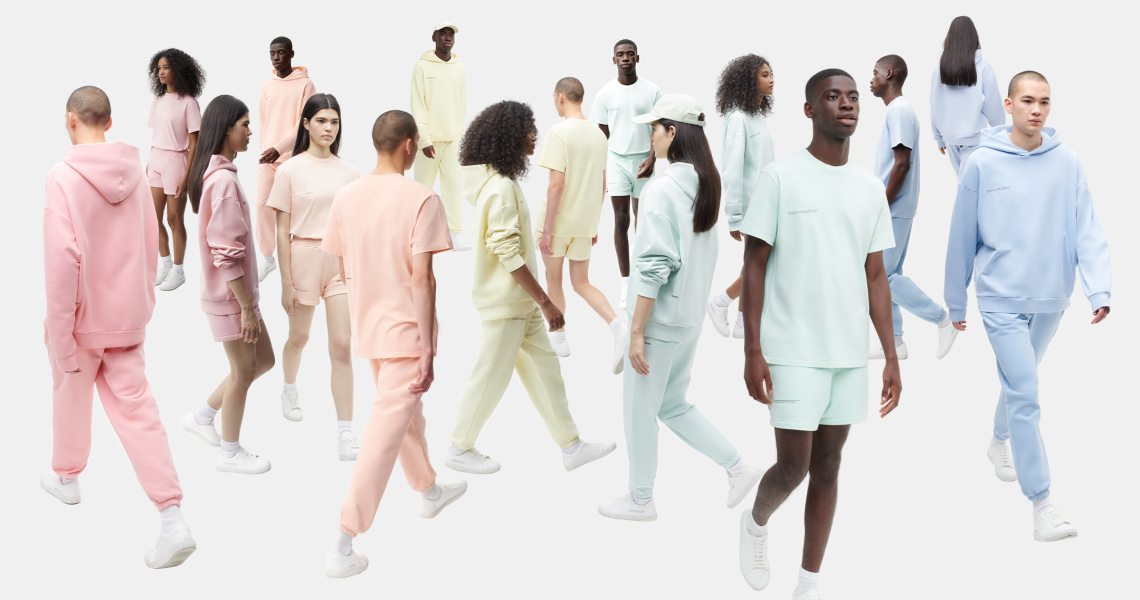On December 19, apparel and materials science company Pangaia announced that it had achieved B Corp status, following an in-depth process requiring certification of a company’s environmental and ethical bonafides. This makes Pangaia one of only around 6,000 companies in the world to achieve B Corp status. Others in the fashion industry include Allbirds, Veja and Chloé.
At a time when greenwashing is rampant and a plethora of brands are claiming to be ethical, sustainable, recyclable and environmentally conscious, consumers are skeptical about brands’ sustainability claims. In-depth certifications like B Corp — or provided by organizations like Climate Neutral and 1% for the Planet — can help separate the brands that are serious about sustainability from those just looking to capitalize on customers’ good will.
Maria Srivatsava, chief impact officer at Pangaia, spoke to Glossy about the process of getting B Corp certified and the importance of doing so to validate the brand’s mission.
Is getting B Corp certified as difficult as people say?
“It is incredibly involved, as you say. The B Impact Assessment is not focused on a single social or environmental issue, so to achieve and maintain certification is a rigorous and continually evolving process. It requires engaging multiple teams and consists of about 300 multiple-choice questions across five categories: governance, workers, community, environment and customers.
For us, the whole process — including the completion of the form, providing all of the evidence, waiting to get verified and then going through the actual verification process — took about 18 months and involved close to 20 people across the business. To complete the certification, we have also had to legally embed our commitment to purpose beyond profit.
We think that this approach from B Corp is what makes the certification so respected. Those who have attempted to achieve it know how difficult it is to actually land it.
Ad position: web_incontent_pos1
Did you ever consider going for other sustainability-focused certifications, or was B Corp always the target?
“From day one, our ultimate goal was to design an Earth-positive business, with the big dream for our company and all our products to eventually be better for the planet than if they did not exist. We applied to get the B Corp certification in our first year of existence, as we strive every day to live to the highest social and environmental standards for people and the planet.
We are humbled and proud to become part of this community but we will also use this new milestone to urge us forward in our mission, as we understand that there is still a long way to go.”
How do you properly communicate Pangaia’s sustainability efforts, when there is so much greenwashing in the apparel industry?
“Since the company was established at the end of 2019, we have been fortunate enough to be able to build Pangaia through purpose and innovation, rather than retrofitting these into an existing business model. We have focused on prioritizing data, including but not limited to the lifecycle assessments that we do on the vast majority — 83% in 2021 — of our products. And we make findings publicly available on our website.
Ad position: web_incontent_pos2
Our team includes innovation, research and development, and impact [teams], who all collaborate to ensure that our claims are accurate and transparent, to the best of our knowledge. We also keep reminding our very engaged and curious community, from whom we receive a number of questions about the impact of our products, that we are on a journey, too. Improving innovation takes time, and there is no silver bullet materials science solution for every social and environmental problem that exists today.”




